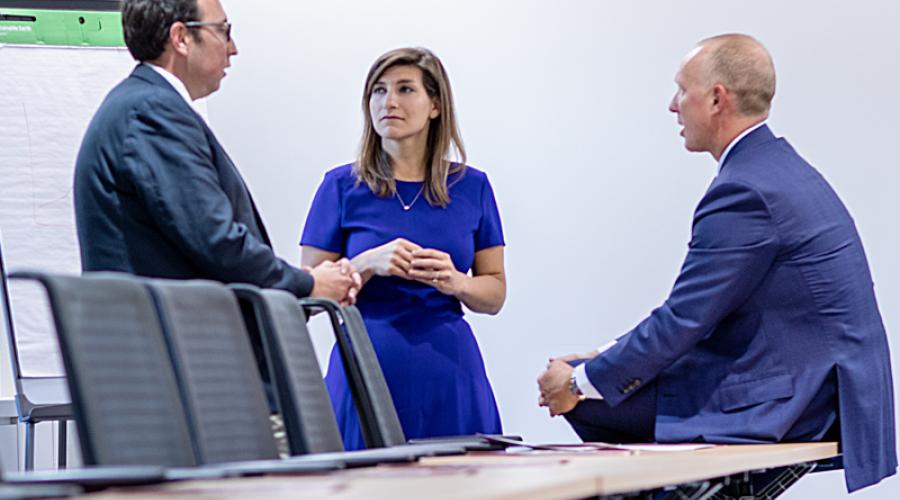
Collaboration With Weill
Weill Cornell Medicine and ILR School faculty are building bridges between the two colleges through research on how the working conditions of low-wage health care workers impact patient care.
ILR Associate Dean of Outreach Ariel Avgar, Ph.D. ’08, and Dr. Madeline Sterling, A&S ’08, are examining how working conditions affect low-wage frontline health care workers in New York and the care they deliver to patients.
The research has been made possible through the support of New York City-based employment lawyer Douglas H. Wigdor of the law firm Wigdor LLP. A member of the Scheinman Institute Board of Advisors, he hopes the interdisciplinary research will encourage more collaboration.
“Home health aides are so important. They spend significant amounts of meaningful time with patients, but they have not been the focus of studies regarding the quality of care. Researching this important relationship will ultimately bring about better care,” said Wigdor, whose son, Jacob, is a Hotel School junior.
Avgar explained how ILR and Weill Medicine expertise has been coupled.
“Dr. Sterling brings expertise on the clinical side as a physician scientist who conducts research on the role of home health aides in chronic disease management, and I’ve done a great deal of research on working conditions in hospitals and nursing homes from an employment relations perspective.”
“We’re going to look at the research we’ve done separately to see if we can leverage our data and explore cross-cutting themes. Our work together will also generate novel data from both categories of workers,” said Avgar, an associate professor.
Sterling, an internist and health services researcher who is also a Weill Medicine assistant professor, said she hopes the project improves integration of low-wage workers into patients’ medical care teams.
“Home care workers spend more time with patients than doctors or nurses. In fact, they are often the minute-to-minute observers of patients’ health. But, it is rare that these observations ever get transmitted to the patients’ medical team or that workers feel like they are a part of the team. I think that needs to change,” Sterling said.
“Low-wage front line health care workers are crucial to delivering care,” Avgar said, but are often ignored within health care and by researchers. “There’s a misperception that they are not central to patient care,” he said.
Sterling first contacted Avgar in 2018 after reading his survey of nursing home employees. That phone call sparked a series of conversations on the topic.
“I think we make a good partnership and complement each other very well,” Sterling said. “Ariel has tremendous expertise in unions, organizational culture and workplace issues, which is such an asset to the sort of research I am aiming to conduct.”
Avgar said he and Sterling, who are members of the Cornell Center for Health Equity, a university and Weill Medicine initiative that will help foster their collaboration, have similar questions and interests, but come at it with different disciplinary lenses. “It’s been a very informative relationship and Dr. Sterling has been an amazing colleague to work with. We’re proving that there is a lot of potential in this type of collaboration between the schools.”